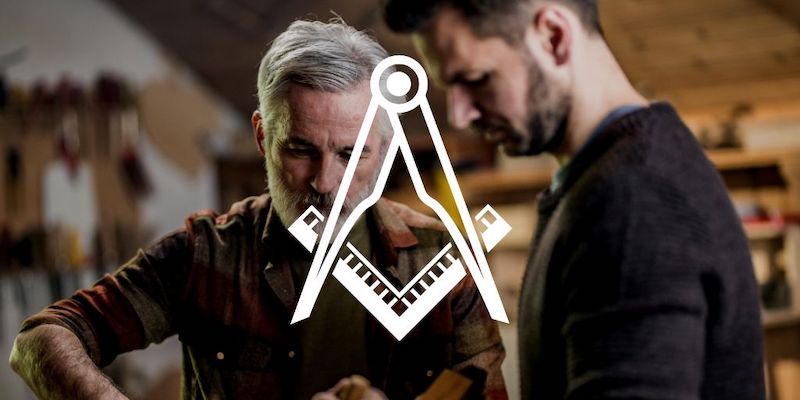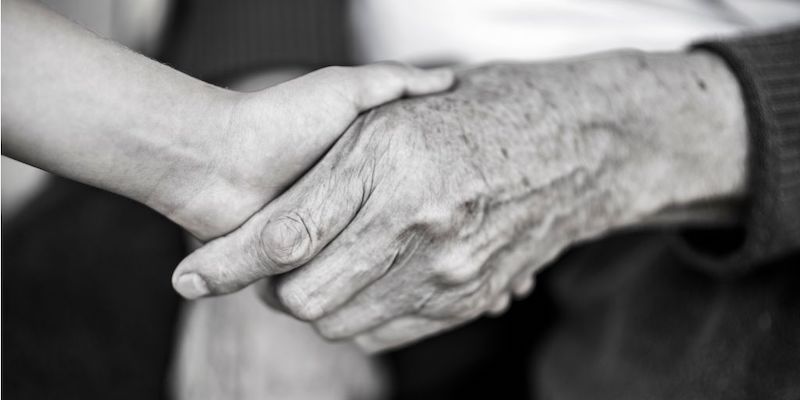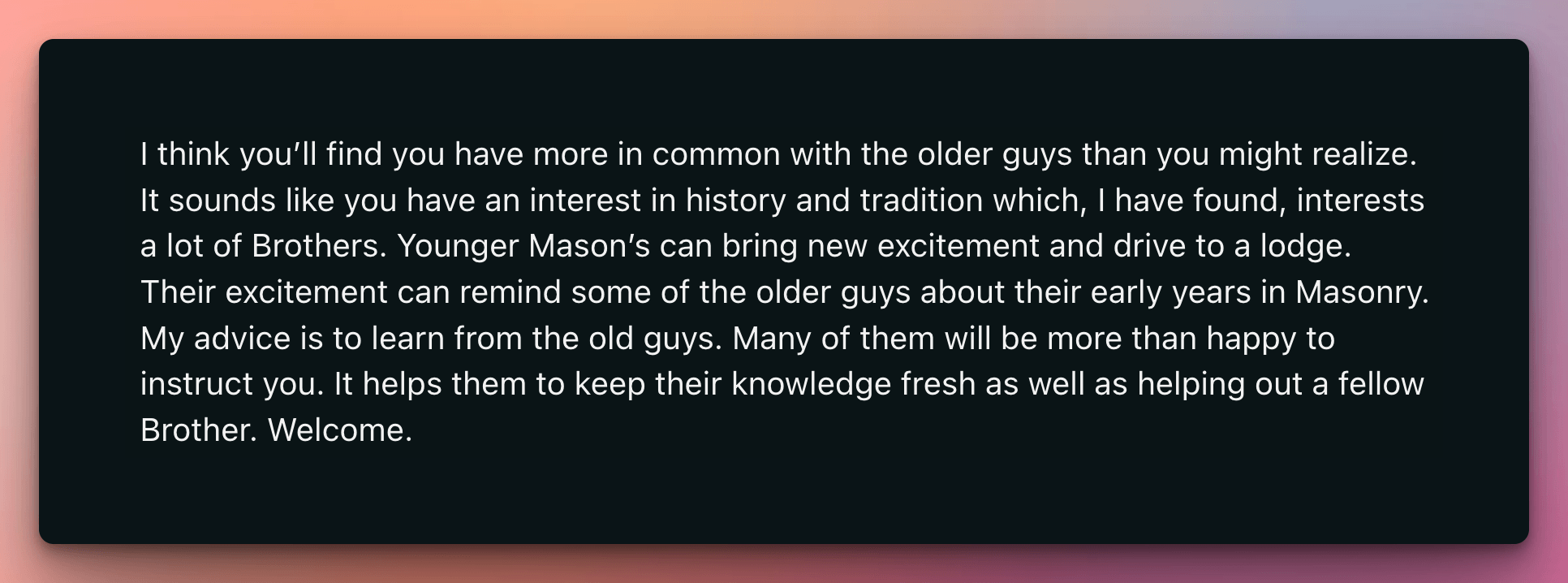A unique and powerful element lies at the heart of the Masonic experience: the exchange of wisdom between generations.
This ancient fraternity, steeped in rich traditions and diverse membership, offers younger members a rare and invaluable opportunity: access to the wisdom of the older generations.
This benefit is not just a simple transfer of knowledge; it is a profound interaction that fosters personal growth, professional development, and a deepening of ethical understanding.
Below, we delve into the multifaceted nature of this wisdom and its significance in the Masonic journey.

Mentorship and Guidance
The mentorship available in Freemasonry transcends the typical bounds of professional advice.
Older Freemasons, with their extensive experience in both Masonic and life affairs, offer a guiding hand can help younger members navigate not only the intricacies of Masonic rituals and symbols but also the more complex challenges of life.
This guidance often takes a personal tone, addressing ethical dilemmas, professional challenges, and personal development with a depth of understanding and empathy that is hard to find in other spheres.
Transmission of Knowledge and Traditions
Freemasonry’s history and traditions are rich and complex, and older members serve as living conduits to this past.
They provide younger Masons with insights into the evolution of the organization’s practices and philosophies.
This transfer of knowledge is crucial for the preservation of Masonic traditions, ensuring that they are not only remembered but also respected and continued by future generations.
Networking and Professional Advice
The diverse nature of Freemasonry’s membership means that young Masons have access to a broad network of professionals.
Older members often provide career advice and professional wisdom, facilitating networking opportunities that can be pivotal in a young person’s career.
This aspect of Freemasonry can open doors that might otherwise remain closed.
Learning Through Real-Life Examples
There is no teacher-like experience, and older Freemasons bring a wealth of it.
Their personal stories of success, failure, resilience, and ethical decision-making provide real-life examples from which younger members can learn.
These narratives offer practical lessons and a rich, contextual understanding of how Masonic principles can be applied in everyday life.
Development of Personal Values
Masonic principles such as integrity, respect, and charity are not just theoretical concepts; they are virtues to be lived.
The older generation embodies these principles, offering younger members tangible examples of how to incorporate these values into their own lives.
This is crucial for the development of a strong personal value system.
Emotional Support and Fellowship
The relationship between younger and older Masons is more than just a transfer of knowledge; it’s a source of emotional support and fellowship.
Having access to the seasoned perspectives of older Masons can be incredibly reassuring and grounding, especially for younger members navigating the complexities of life.
Encouraging Reflective Practice
Reflective practice is a key aspect of Masonic learning, and discussions with older members encourage younger Masons to engage in this reflective process.
Through pondering the experiences and insights shared by older members, younger Masons achieve deeper self-awareness and understanding, which is essential for personal growth.
Fostering Respect for Elders
The dynamic between the generations in Freemasonry helps cultivate a culture of respect for the elderly.
This respect is integral to the Masonic ethos and extends beyond the lodge, influencing how younger members interact with elders in their wider community.
Preservation of Continuity
This exchange of wisdom is critical for the continuity of Freemasonry as an institution.
Armed with the knowledge and insights passed down, younger members are better equipped to keep the fraternity thriving and relevant in an ever-changing world.
Adaptation and Innovation
Interestingly, this exchange is not one-sided. Older Masons also benefit from the fresh perspectives brought by younger members.
This reciprocal relationship ensures that Freemasonry is not just a relic of the past but a living, evolving organization that remains relevant in contemporary society.

Frequently Asked Questions:
How can experienced Freemasons contribute to mentoring younger members?
Experienced Freemasons can contribute significantly by sharing their knowledge of Masonic traditions, offering guidance in Masonic practices, and providing life advice drawn from their personal and professional experiences.
Engaging in one-on-one mentorship and participating in lodge education programs are effective ways to impart wisdom to the younger generation.
What role do senior Freemasons play in preserving Masonic traditions in the modern era?
Senior Freemasons are vital in preserving Masonic traditions amidst contemporary societal changes.
They act as custodians of Masonic history and rituals, ensuring that these practices are not only maintained but also passed down with integrity and respect to new members, thus keeping the essence of Freemasonry alive and relevant.
How can older Freemasons stay actively involved in lodge activities as they age?
Older Freemasons can stay active by adapting their participation to their capabilities.
This can include taking on less physically demanding roles, focusing on mentorship, participating in educational talks, or assisting in administrative duties.
Lodges also benefit from their wisdom in advisory or leadership roles, ensuring a continued sense of engagement and contribution.
What are the opportunities for lifelong learning and personal development in Freemasonry for older members?
Freemasonry offers a continuous journey of personal development, regardless of age.
Older members can engage in lifelong learning through Masonic education, exploring deeper philosophical and symbolic aspects of Freemasonry and taking on new roles within the lodge that challenge them intellectually and spiritually.
How can older Freemasons help adapt Masonic practices to appeal to a younger generation while maintaining core traditions?
Older Freemasons can bridge the gap between tradition and modernity by being open to new ideas and approaches that resonate with younger members.
This includes embracing technology, supporting contemporary interpretations of Masonic teachings, and fostering an environment where the core values of Freemasonry are expressed in ways that are relevant to today’s societal context.

The wisdom exchange between older and younger members in Freemasonry is more than a mere transfer of knowledge; it is a profound interaction that shapes individuals and the fraternity as a whole.
It ensures the preservation of Masonic traditions, fosters personal and professional growth, and maintains the relevance of the organization in modern times.
For young Masons, this access to the wisdom of the older generations is an unparalleled aspect of their Masonic journey, enriching their lives in countless ways and preparing them to be the custodians of Freemasonry for future generations.